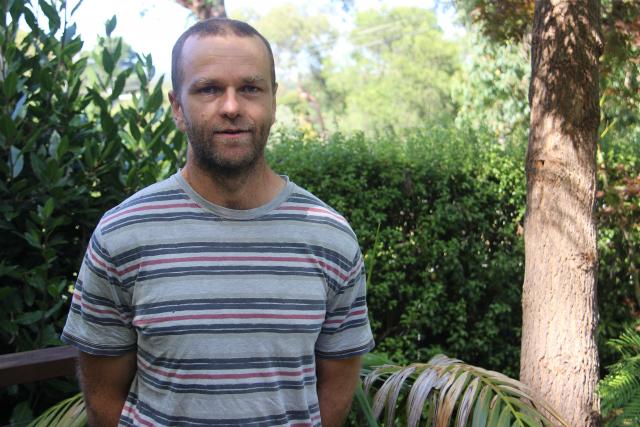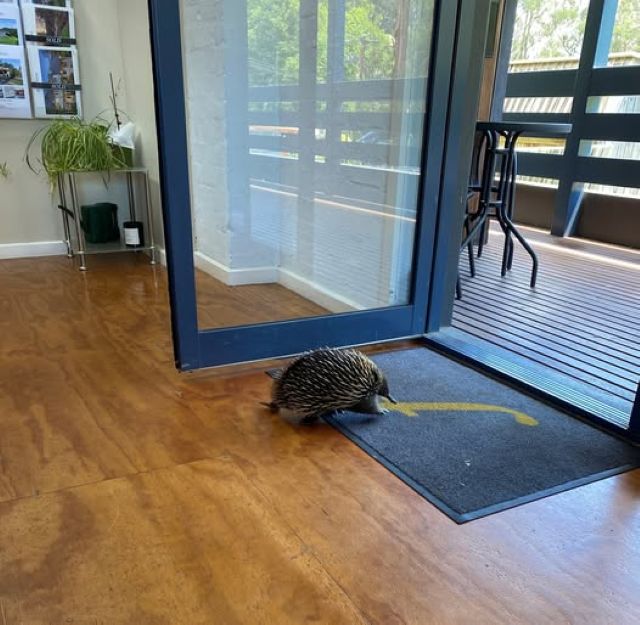Not many people can say they’ve climbed to the top of their field.
Arborist Barton Allen-Hall is the world champion in tree climbing, having won the 2022 International Tree Climbing Championship in Copenhagen late last year.
The 37-year-old Upwey local said he has been competing competitively since 2011 after working in the tree industry for the last 18 years.
“I didn’t really discover it until I moved to Melbourne because I started in Canberra, and there wasn’t a state competition there,” he said.
“I knew through magazines that there were competitions being run, but I didn’t really understand it. When I moved down here there was a big competitive community that holds competitions every year and if you do well, you can qualify for Asia Pacific and the international ones.”
Mr Allen-Hall has previously competed in the United States — where the ITCC is usually held — and finished second on two occasions.
He said he attended ITCC in Sydney in 2011, the first time the event had been held outside North America.
“Knowing the International was going to be in Sydney, I thought I’d fly up and have a look at that, see the best in the world do it and it got me hooked,” he said.
“I don’t know any other sport where people are supportive, to be honest, in terms of people who are competing directly against each other.”
The preliminary rounds see competitors tested in five different areas of climbing: The work climb, aerial rescue, throwline, belayed speed climb and the ascent event, each testing competitors in abilities and skills used by arborists in the field. Each area takes between four and six minutes to complete and competitors are marked by judges out of 300 based on their results in each event.
Mr Allen-Hall said the only work skill that isn’t tested is cutting branches.
“You have to be well prepared and well and understanding the rules is crucial, I’m usually I’m usually pretty good at that,” he said.
“By the time you get to the international level, most people are because they’ve won competitions.”
The preliminary rounds has competitors competing in five different tests of climbing: The work climb, aerial rescue, throwline, belayed speed climb and the ascent event, each testing competitors in abilities and skills used by arborists in the field.
Mr Allen-Hall said in Copenhagen, he performed well during the preliminary rounds and finished first on the scorecard.
“I’m always surprised when I do well at that level because you see all the other good competitors and think you aren’t going to beat them,” he said.
“If you win the preliminaries, you get the first choice of the order in the masters.”
Following the preliminary rounds, a handful of competitors progress to the masters climb, the final round and test of their tree climbing ability.
Mr Allen-Hall said there were three other competitors who progressed alongside him, and he chose to be the third to attempt the master climb, which takes between 25 and 35 minutes to complete.
“I used to like to go first or second, but last time I finished second I went first,” he said.
“Since 2021, I’ve given a large part of my life to it, finished second a couple of times so it was pretty emotional.”
After being one of two people to finish within the target time for the masters climb, Mr Allen-Hall said he was “fairly confident” he was going to win.
“It was a bit of an anti-climax. One of my friends from America was in the masters too and he was disqualified for breaking a branch, so he knew he was out and he was pretty sure I’d won it,” he said.
“Not many people can say they are the world champion and the amount of effort I’ve put in over the years, it was really special.”
Despite winning, Mr Allen-Hall is already looking forward to the 2023 International Tree Climbing Championship, which he automatically qualified for as the reigning champion.
He said he would encourage any kids that like tree climbing to look into a career as an arborist and he “couldn’t ask for a better job.”
“You’ve got this competitive side to it if that’s your thing, but if it’s not that fine too because there’s plenty of us who don’t do it,” he said.
“It’s super rewarding. After a few days off, I’m usually hanging out to get back to work which is pretty lucky. With trees, there are all sorts of complexities and challenges when working with a living thing.
“I’d encourage anyone who wants to get into a physical and active job to do it.”







